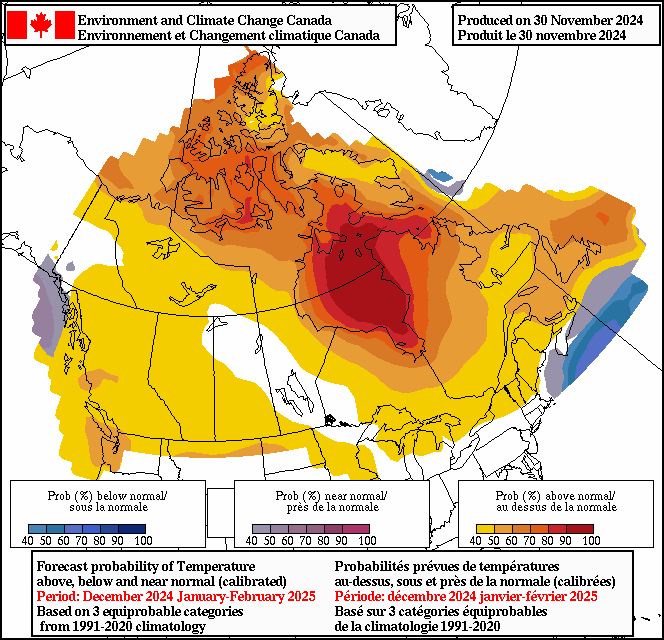More precipitation at the start of winter says Environment and Climate Change Canada

Glacier Farm Media | MarketsFarm – Environment and Climate Change Canada (ECCC) presented its winter seasonal outlook on Dec. 4. Officials said they expect temperatures across the country to be close to or above normal for the beginning of winter. However, they pointed out Western Canada is likely to experience normal to below-normal temperatures come January and February.
As for precipitation, ECCC said above-normal amounts are likely to be received over most of Western Canada, Northern Ontario, Northern Quebec as well as Newfoundland and Labrador. ECCC stated it’s unclear at this time how much precipitation during the December to February period is in store for the rest of the country.
Read Also

Mexico expects resolution on GM corn dispute by Dec. 14
Mexican Economy Minister Marcelo Ebrard said on Tuesday he expected a resolution on a dispute under the U.S.-Mexico-Canada free trade pact regarding Mexican restrictions on imports of genetically-modified (GM) corn by Dec. 14.
One factor guiding the outlook is the La Nina forming in the Pacific Ocean. However, ECCC said the La Nina has yet to officially develop, but when it has done so, the system is expected to be weak during the winter. ECCC noted the La Nina could still generate a more active storm track over the Great Lakes and Atlantic Canada. Officials added the system can lengthen the country’s snow season.
One positive effect of this winter’s snowfall is ECCC forecast more precipitation for those drier areas of Canada that experienced a large number of wildfires over the last few years.
Another factor ECCC accounted for was the Pacific Decadal Oscillation, which when combined with a La Nina could result in a colder than normal temperatures, particularly for Western Canada.
Overall, officials predicted the 2024/25 to be more like a more seasonal winter as opposed that last year.
On the downside, ECCC stressed that Canada is warming at about double the global rate, especially further to the north. With that in mind, ECCC created the Rapid Extreme Weather Event Attribution system, which will analyze the connections between human-caused climate change and the odds of extreme cold temperatures. The system is expected to come online next year.
Source: Farmtario.com

